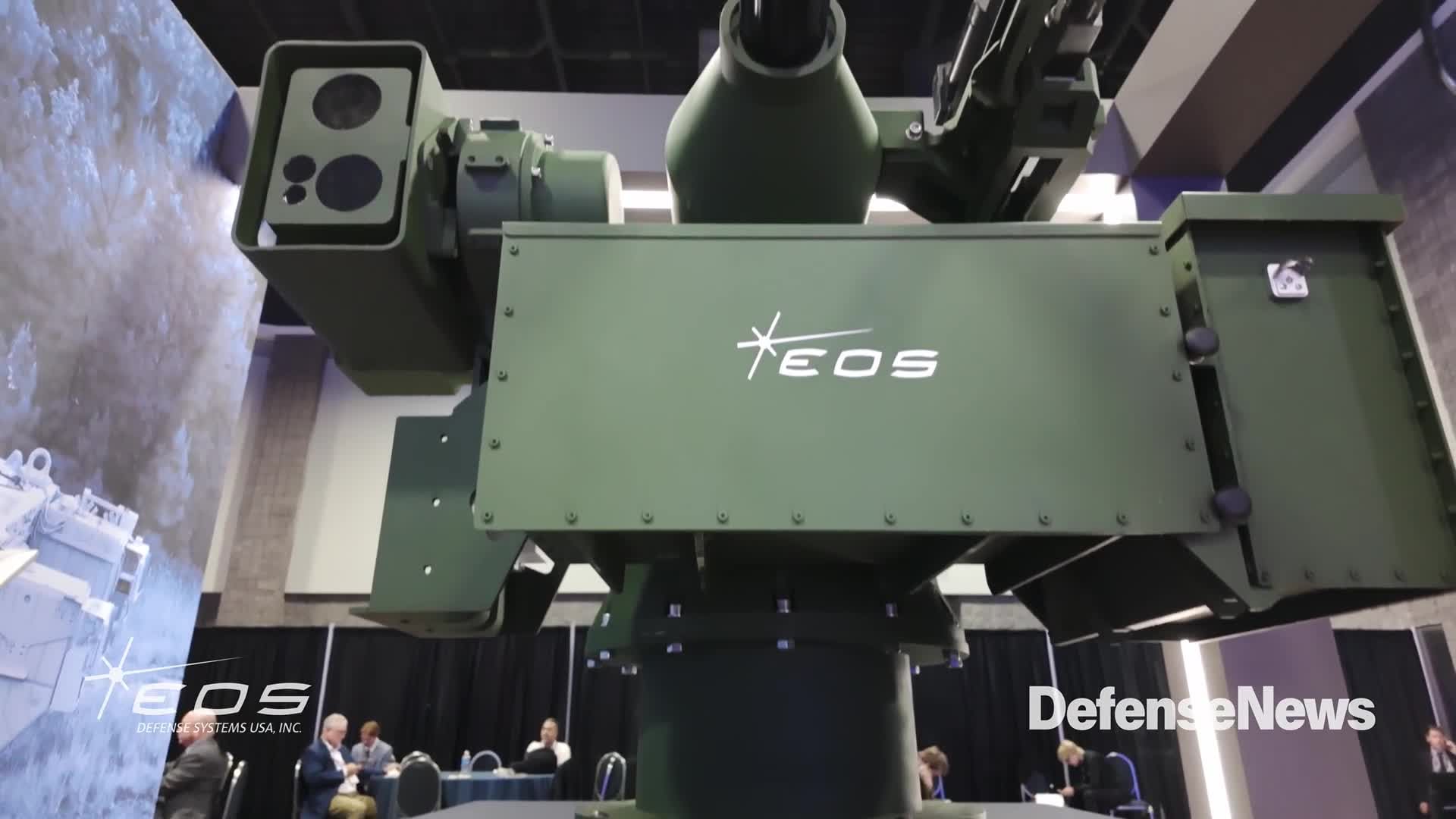ORLANDO, Fla. — On Wednesday, six small businesses pitched U.S. Air Force acquisition leaders on unique training and simulation technologies, each walking away with a $1 million contract in as little as 20 minutes.
The inaugural Simulators Pitch Day at the Interservice/Industry, Training, Simulation and Education Conference was the third “Shark Tank”-style event held by the service in the hopes of broadening its industrial base to include small companies, startups and other firms that don’t typically work with the government.
“I thought what they presented was awesome. But actually I felt a sense of accomplishment, which is something that we sometimes don’t feel in acquisitions because it often takes forever to get something done,” said Col. Phillip Carpenter, the Air Force’s senior materiel leader for the simulators program office.
Click here for more from I/ITSEC.
During a Thursday event that allowed the six companies to take a victory lap by pitching their products to an audience of Air Force and industry officials attending the conference, Carpenter recounted how he felt presenting each company with funding meant to help further develop their products.
“The looks on their faces — I know the feelings that they felt about the opportunity to participate with us in our mission. In 25 years of doing acquisitions it was probably one of the greatest feelings I’ve ever had,” he said.
Although the Air Force didn’t limit the types of technologies that companies could pitch, it sought out several specific technologies including high-end weather effects for gaming environments, high-fidelity simulators that could be deployed to austere locations, cloud-based simulators and artificial intelligence-aided instruction tools.
In the end, Perceptronics Solutions, Information Systems Laboratories, DTI, PlaneEnglish, Take Flight and King Crow Studios were chosen to present 10-minute proposals during a closed-door session with Air Force acquisition officials.
The technologies presented by the companies covered a wide variety of niche gaps in the simulation industry. DTI pitched a stereoscopic 3D display that doesn’t require specialized 3D glasses — something the company believes might one day be a useful upgrade for the remote vision system used by KC-46 boom operators. Plane English proposed an aviation radio simulation for aircrews to familiarize themselves with radio chatter.
The other pitches were:
- Take Flight Interactive’s virtual flight instructor.
- Perceptronics’ assessment tool called Train DX, which brings together instructor evaluations, biometrics and data from simulators and other training tools to create a “report card.”
- King Crow Studios’ virtual reality trainer to teach advanced tactics to pilots.
- Information Systems Laboratories’ plug-and-play “sidecar” for flight simulators that better imitates the effects of radar and electronic warfare systems.
“I want to let some of the small companies that might be in the room know that if you’re thinking about doing Pitch Day next year, it really wasn’t that terrifying,” said Greg Carter, vice president of Information Systems Laboratories.
“I really didn’t sleep the night before,” he said, joking that he had nightmares where Carpenter transformed into Shark Tank host Mark Cuban. “[After winning], I slept much better.”
Valerie Insinna is Defense News' air warfare reporter. She previously worked the Navy/congressional beats for Defense Daily, which followed almost three years as a staff writer for National Defense Magazine. Prior to that, she worked as an editorial assistant for the Tokyo Shimbun’s Washington bureau.








